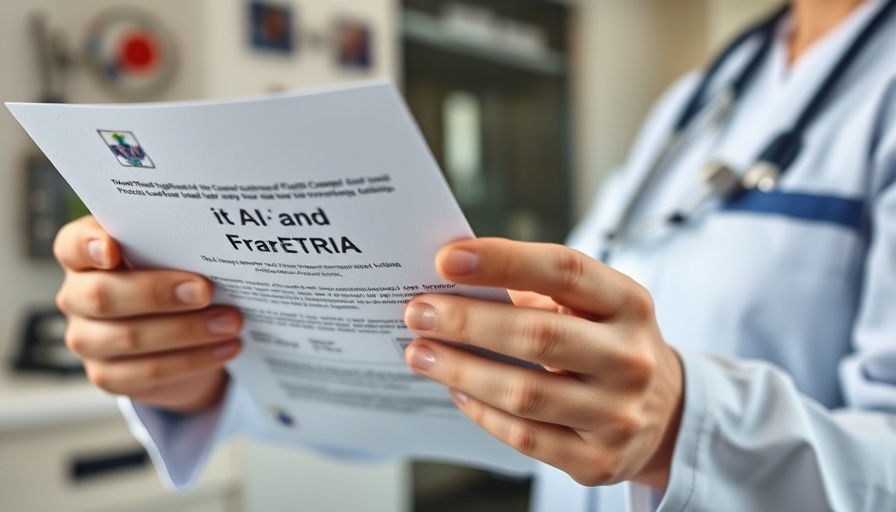
Understanding POPIA Compliance in Healthcare
The Protection of Personal Information Act (POPIA) is a crucial legislative measure that ensures the protection of personal health data in South Africa. For healthcare professionals, understanding POPIA is not just a legal obligation; it's a foundational pillar for building trust and ensuring patient safety. As the healthcare sector increasingly leans on technological solutions such as artificial intelligence (AI), it becomes paramount to navigate this landscape with full awareness of compliance requirements.
What Makes AI and Healthcare a Complex Mix?
AI tools have carved an invaluable niche within the healthcare realm, offering efficiencies in managing personal health information (PHI). However, using public, free versions of these AI solutions can expose healthcare professionals to serious compliance risks. At the heart of this is the lack of a Business Associate Agreement (BAA) that governs the use and management of sensitive patient information. This legal gap poses a major liability; clinicians who use these tools remain the Responsible Party and are thus exposed to potential breaches of compliance.
The Risk of Unauthorized Use of Patient Data
When AI platforms do not ensure appropriate contractual safeguards, sensitive health data can be used without authorization, leading to POPIA violations. For example, many AI companies retain data submitted to their platforms to enhance their algorithms. This could inadvertently include patient details that the healthcare provider may have inputted, opening up pathways for data misuse.
Embracing Responsible AI Solutions
As the healthcare environment continues to evolve with technology, the need for compliant AI services is heightened. Auraliti AI emerges as a solution that fills this gap. Through a robust framework that includes BAAs with service partners and strict zero data retention policies, Auraliti not only protects patient data but also ensures compliance with POPIA. Their platform securely houses PHI on enterprise-grade servers while providing healthcare professionals with rich clinical insights through structured data.
Unlocking Clinical Potential Through Compliance
Compliance with POPIA opens doors to not just safety but also effective healthcare delivery. When health records are properly structured, they can generate valuable insights that enhance clinical decision-making. Auraliti, for instance, aids healthcare providers in quickly generating structured documentation such as SOAP notes and referral letters, streamlining workflow and allowing more time for patient care.
Turning Compliance into Competitive Advantage
As professionals in the healthcare sector, understanding that compliance is a strategic advantage is critical. Beyond just being a legal obligation, robustly managing personal health data intrigues patients and enhances operational efficiency. It gives healthcare providers the confidence to embrace digital innovations that improve service delivery and patient satisfaction without compromising data rights.
The Broader Impact of Healthcare Technology
The intersection of healthcare and technology holds vast potential to change lives, making education around compliance equally vital. As South Africa ramps up its push for improved healthcare systems, understanding health legislation paired with technological advancements forms an overall strategy to improve the nation's health outcomes. A well-informed healthcare provider can be a pivotal player in combating public health challenges like HIV/AIDS, non-communicable diseases, and chronic health issues.
Conclusion: Secure Your Practice and Restore Your Focus
As the landscape of South African healthcare transforms, embracing compliance isn't merely about legality; it’s a commitment to your patients. Integration of AI and adherence to POPIA principles nurture a trustworthy environment, ensuring healthcare professionals can concentrate on their mission—to provide life-improving care. Explore how Auraliti can help you meet these challenges and propel your practice into the future. Secure your practice today and focus on what truly matters: your patients’ health and wellness.
 Add Row
Add Row  Add
Add 




Write A Comment